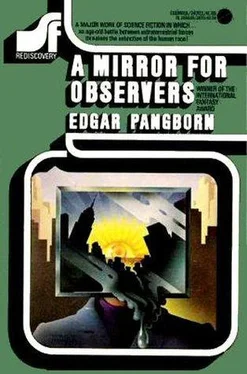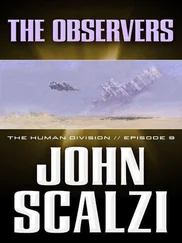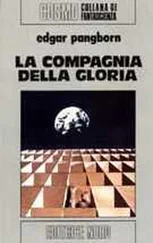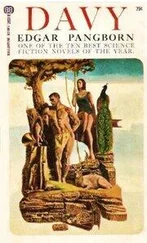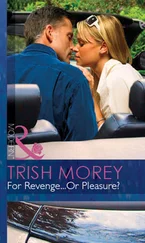The city’s resident population has gone down by about a million, with corresponding increase in the huge arc of the metropolitan district. There’s revival of the old proposal to make the district a separate state. Civic groups kick the idea around. One in particular is gathering petition signatures and doing spadework in Congress. They want the new state to be named Adelphi. I’ve got no objections.
Pro Arte Hall is high up in one of the buildings rising directly from the river — clean-shining steel and stone and glass. Conditioned as we have been, Drozma, to the hidden life, we’ll never quite know how they do it. These buildings are wholly human, artifacts of their complex science, yet married to nature also, to wind and sky, stars and sun.
The auditorium itself is severe. Cold white and self-effacing gray. Nothing irrelevant to tickle or distract the eye, only an uncomplicated stage and stern classical dignity of the piano. (But it was good, during intermission, to go into a lounge and find, beyond its glass west wall, an open space from which one looked down to the river. How far down I don’t know. A bright liner passing downstream was a playroom toy. In spite of the March chill I was happy to watch it until the bell rang for the second half of Sharon’s miracle.)
Few in the audience knew anything about her, I think. Just one more New York debut. I had a case of nerves, my heartbeat shaking me each minute. I read the program a dozen times, and knew nothing of what it said except that the first number was the Bach G Minor Fugue.
Then she was there. Slim, slight, seeming tall — oh, I’d known that! In white. I’d known that too. Her corsage was a tiny cluster of blue scillas and snowdrops, absurdly modest. She still wore her brown hair shoulder-length, misty with strange lights. She didn’t find it necessary to smile. Her bow was almost perfunctory. (She has told me she was totally petrified, couldn’t bow deeper for fear of going over flat on her face.) I remembered Amagoya.
She seated herself, touched her palms with a handkerchief, adjusted the long skirt to clear her ankles. Dimly I knew she was still sort of snub-nosed. Somewhere there must have been a red rubber ball on a string….
Then I had to pay her the best compliment: forgetting her. The fugue took hold with clear-cut authority. What unreal and therefore eternal cities did Bach know, to create his architecture out of the marble of dreams? Was the G Minor written after his blindness? I don’t remember. Not that it matters: his visions need no common eyesight. It was as if Sharon had said (to all of us): “Come here with me. I can show you what I saw.” No other way to play Bach, but who at nineteen is supposed to know that?
In spite of the fugue’s enormous ending there was not the usual burst of excitement killing the last chord. Instead they gave her some seconds of that enchanted silence all human performers pray to receive (an experience I can’t quite share, since Martian audiences grant the silence as a matter of course, for music’s sake). When the crash came it was not prolonged, for Sharon did smile then, and the shy grimace touched off sympathetic laughter, a way of saying they loved her, and the applause broke off short at the merest half turn of her head back to the piano.
The rest of the first half was all Chopin. The sonata; three nocturnes; two mazurkas; the F Sharp Minor Impromptu, which I think is the extremest distillation of Chopin, a union of ecstasy and despair nearly unbearable. Sharon thinks so, played it so. Even with that still burning inside us, we demanded an encore at the end of the first half, a thing unheard of nowadays. When the shouts were unmistakable, she gave us the little first Prelude, as she might have tossed a flower to a lover who deserved it but wasn’t too bright. Pianissimo all the way through, disregarding the conventional dynamic marks: like opening a window on a waterfall and closing it before you can guess what the river is saying. I never played it like that. Frederic Chopin didn’t, when I heard him in 30,848, but I don’t believe he’d have minded. I can’t fathom the phonograph-intellects who insist on “definitive interpretation.” You might as well insist, when a friend gives you a jewel, that only one facet may be looked at, world without end. You might as well ask for a definitive moonrise. Sharon grinned after that tour de force — not a definitive grin either, a big human one. She ran off. The lights went up.
It was an uncommonly long program, especially for a debut. A newcomer is still expected to be humble before tradition. A chunk of Bach for the critics, a chunk of Beethoven, maybe some Schumann to fill in the cracks, Chopin to prove you’re a pianist, finally a scintillant gob of Liszt for bravura and schmaltz. Sharon had paid her respects with Bach all right — what Bach! — but only because she wanted to. My mangled scrap of program told me the second half began with a suite by Andrew Carr, an Australian composer not known till a year ago. And it ended with Beethoven, Sonata in C, Opus 53.
Realization came slowly. I’m not in the habit of thinking in opus numbers, but it came through then to my dazed intelligence that 53 is the “Waldstein.” I think that was what made me reach one of those impulsive, wholly emotional decisions which I don’t expect to regret. I scratched on the rumpled program: Not dead, had to change face and name to help me hunt for A. No, dear, I haven’t found him. May I see you? Alone, please, and don’t tell anyone about me yet. You’re a musician. I love you beyond comprehemption.
I found an usher, a girl who promised to get my note to Miss Brand. I wandered outside. I watched that ship going downstream in the open night. After a while, as I’ve told you, I was quite happy. When I went back the popeyed usher located me, pushed a slip of paper in my hand, and whispered: “Hey, know what she did when she read your note? Kissed me! Well, I mean… ”
I bumbled like Santy Claus. The lights had already dimmed, but I could read the huge scrawl: Blue River Café 2 blox down Esplan riverside wait for me lounge escape earliest poss O Ben Ben BEN!!!
She may have tried to see me in the audience, though I had mentioned a changed face. There was a blind look about her. I knew terror, fearing I might have upset her and hurt the second half of the concert. But then she was resting her fingers silently on the keys, as if the towering Steinway had its own will and could communicate, soothe, clear away confusion and leave her free. I needn’t have worried.
The Andrew Carr suite is excellent. Complex, serious, young; perhaps too heavy, too immense, but with a cumulative passion that justifies it. Likely a greater maturity will teach Carr the value of the light touch. In the program notes, I remember, he acknowledges a major debt to Brahms. All to the good, especially if it means that composers of the ’970s have finally buried the I-don’t-really-mean-it school of the ’930s and ’940s. Carr has learned more from the young Stravinsky than from the old; Beethoven glances over his shoulder; he needs more Mozart in his system….
I won’t play the “Waldstein” again. Anything else, yes — I don’t despise my own talent. Not the “Waldstein.” For anyone else it would have been bad programming to let the sonata follow the shattering climaxes and nearly impossible athletic demands of the Carr suite. Not for Sharon. She wasn’t tired. She made it a summing up, a final statement to throw the colors of a thousand flames on all the rest.
Maybe I’ve heard the opening Allegro done with more technical finish; never with more sincerity. In the melancholy of the brief Adagio I was lost. I don’t know all that Sharon meant; Beethoven’s meditations are not altogether ours at any time. She took the gentle opening of the Rondo more slowly than I would have done, but she was right, and the acceleration of the A Minor passage became all the more a terrifying flash, a blaze of longing abruptly revealed…. The sonata’s conclusion was blinding. No one looks at that much light.
Читать дальше
